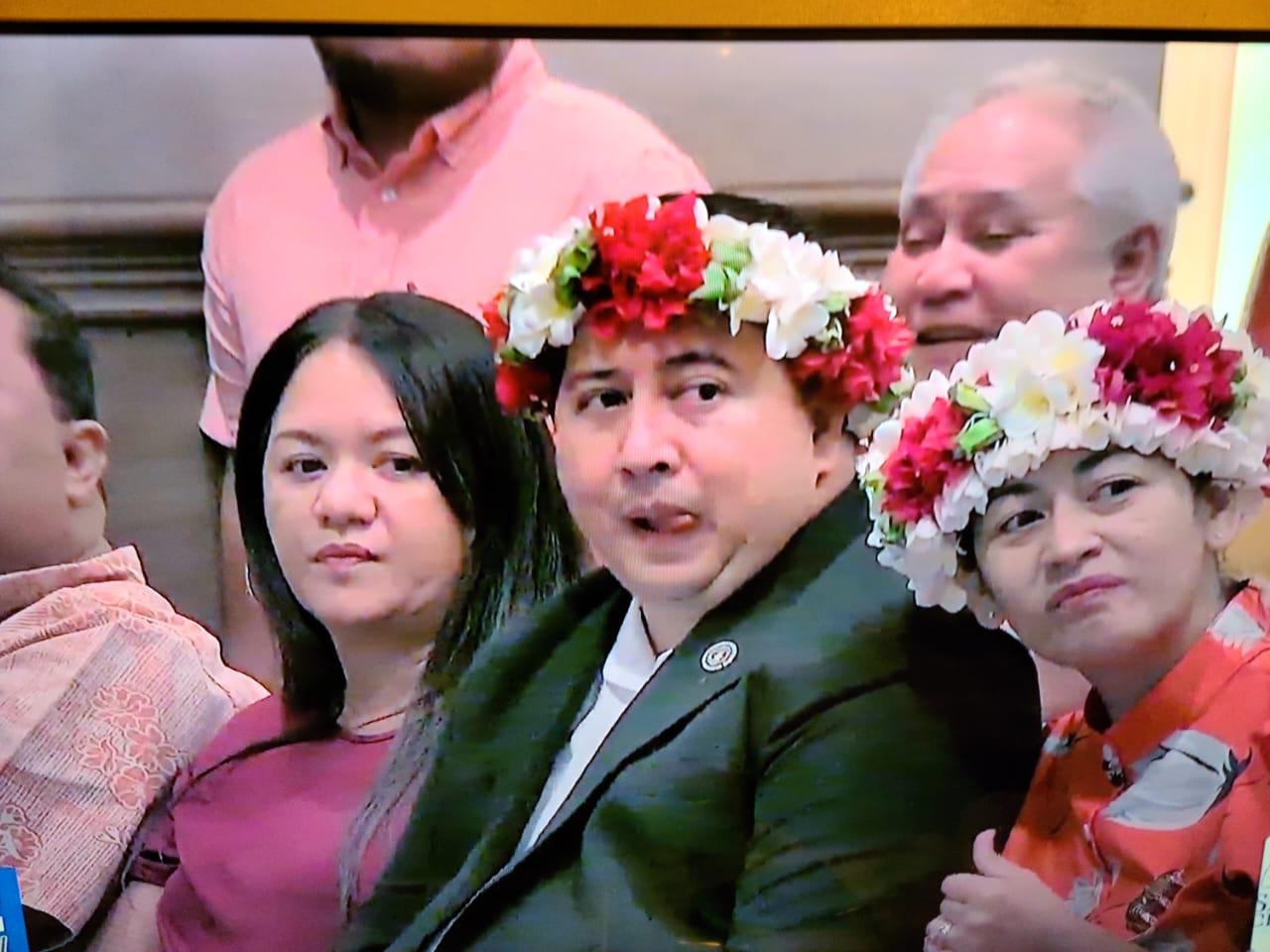
Rep. Blas Jonathan Attao proposed legislation that will dedicate a funding source to help pay down the Commonwealth government’s burgeoning deficit. House Bill 23-56, which Mr. Attao pre-filed along with a majority of the members of the House, will redirect 50 percent of all indirect cost reimbursements to a deficit elimination fund, if the bill passes into law.
The fund will be separate from the General Fund.
“Indirect cost reimbursements from grants provide a source of money for paying down our budget deficit,” the findings and purpose clause of the Attao legislation states.
Indirect cost reimbursements are the funds federal grantors give to the Commonwealth government for the local government’s expenditures made in the process of administering a given grant’s direct benefits. For example, in administering the federal Medicaid program, which provides direct benefits to Medicaid recipients in the form of insurance payments on medical expenses, the Commonwealth government pays the salaries of its Medicaid office workers, on and off island training for staff, fuel for on-the-field workers, etc.
Those costs are eligible for reimbursement from the federal grantor to the Commonwealth government, greatly reducing local operational costs and taxpayer burden.
Almost every grant program has an indirect cost associated with ensuring direct benefits of the grant get to the right people.
In 2016, the Nineteenth Commonwealth Legislature – in the first full year of the Torres administration – passed the Grants Management Act of 2015. The act reestablished the CNMI Office of Grants in order to capture indirect costs reimbursements, and use a portion of the funds to operate the grants management office, and to apply for more federal grants.
According to the current law, 40 percent of indirect cost reimbursements are dedicated to CNMI Office of Grants operations, and sub-grantee revenue. The remaining 60 percent is used at the discretion of the administrator of the office. The incumbent, who is a holdover from the Torres administration, is Epiphanio Cabrera.
“Rep. BJ is not saying this out loud, but one of the reasons for this is to stop the use of that money as a slush fund, which it has been since 2016,” one House legislator said under condition of anonymity. “We don’t know what they’ve been using that money for, and they’re very hush hush about it.”
Indeed, no records of the expenditure of the 60 percent of funds exists on the grants office’s website. The fund also is one of the funds allowed to be carried over from fiscal year to fiscal year; an accounting nightmare, which often skews financial data and the actual size of deficits and surpluses from year to year.
Mr. Attao’s legislation will remove the slush fund, and legislatively appropriate five-sixths of it, or 50 percent of total indirect cost reimbursements, to deficit reduction. The remaining one-sixth, or 10 percent of reimbursements, will be appropriated to the Department of Finance for the administrative costs of managing deficit reduction and finding more grants.
“The 60 percent: former Governor Torres was using it for whatever he pleased,” Mr. Attao said. “He never remitted it to the legislature for appropriation purposes.”
Fifty percent of indirect costs reimbursement are estimated to be about $4 million annually, though Mr. Attao believes this number will grow exponentially now that federal grantors know Mr. Torres is out of office and a more responsible governor is at the helm.
Kandit’s sources say the legislation also has strong support in the Senate.






